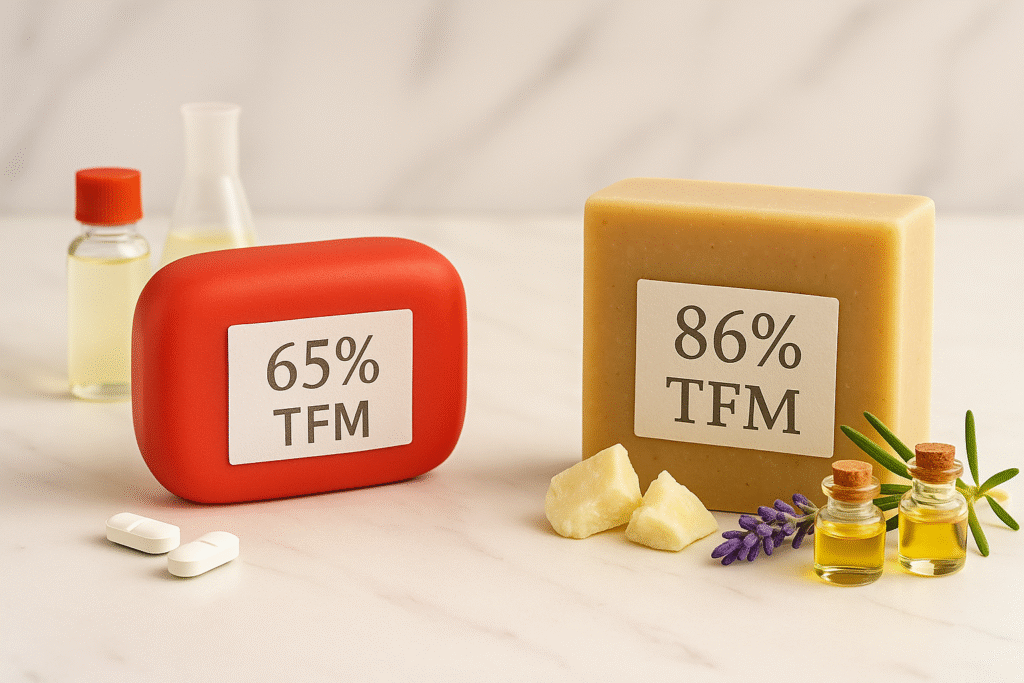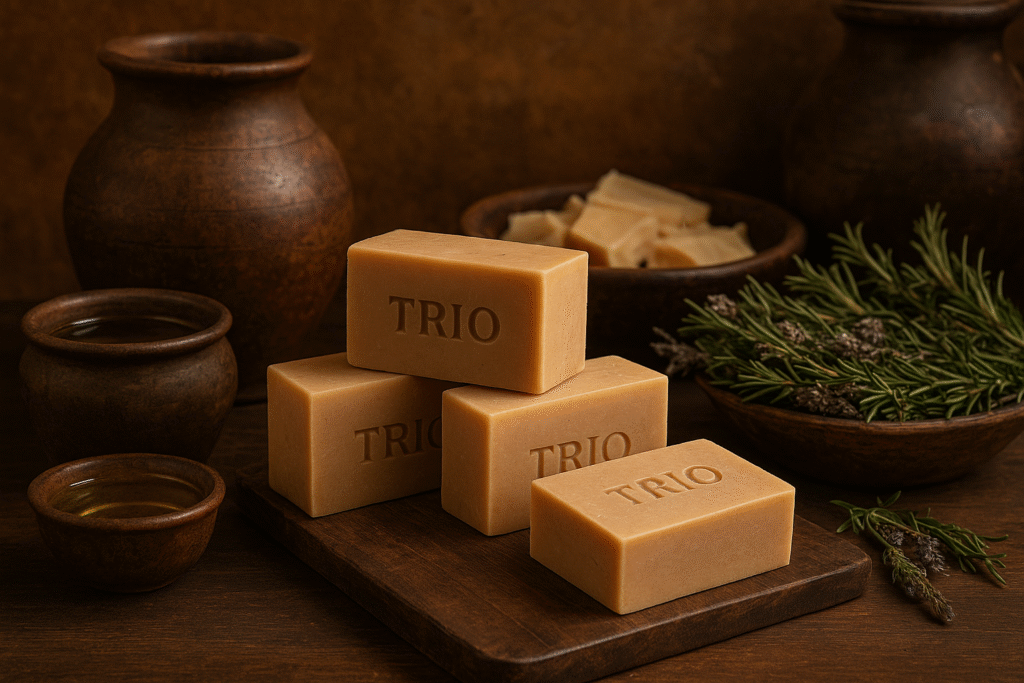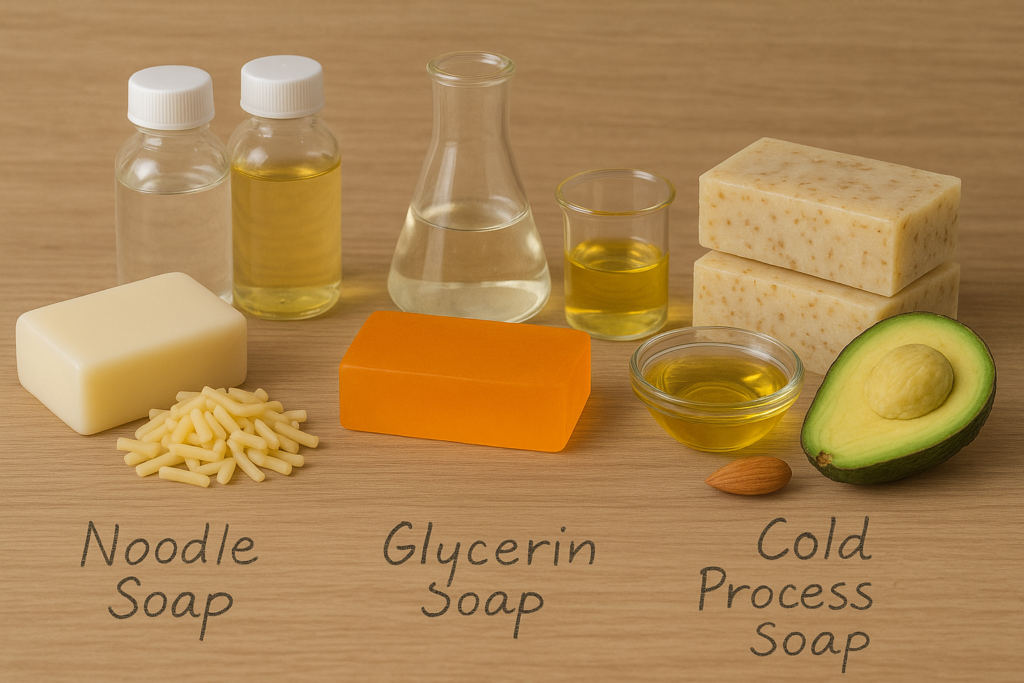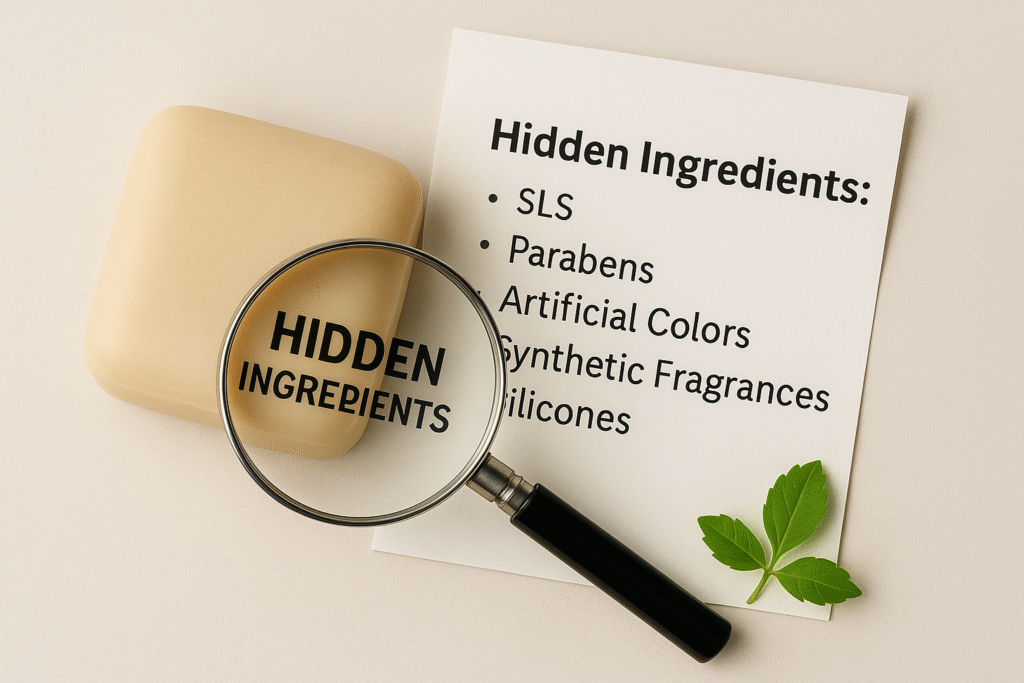Understanding TFM in Soap: A Comprehensive Guide to Choosing Quality Bars
Why Total Fatty Matter, Indian Soap Grades, and Clean Ingredients Matter for Your Skin

When you pick up a bar of soap—whether it’s a handcrafted cold-process bar or a mass-market detergent bar—you’ll often see TFM or Total Fatty Matter called out. But what exactly does TFM mean, and is it enough to choose the best soap? In this post, we demystify TFM, explain how it’s measured, explore its role in soap grading (including Indian BIS Grades I–III with real-world examples), and show why a holistic approach—avoiding harsh chemicals and considering clean ingredients—matters. Finally, discover why TRiO Soap, with 86% TFM and a fully disclosed ingredients list, stands out.
What is TFM?
Total Fatty Matter (TFM) is the percentage by weight of fatty acids (from oils and fats) in a soap bar after saponification. Key fatty acids include lauric, oleic, stearic, and linoleic acids—each influencing cleansing power, lather, hardness, and moisturization.
Why TFM Matters in Soap Quality
- Lather & Foam: Higher TFM → creamier, longer-lasting bubbles.
- Skin Feel & Moisturization: Fatty acids leave a nourishing lipid film on skin.
- Hardness & Longevity: Balanced TFM and superfat yield firm bars that last longer.
- pH Correlation: Rich fatty profiles often correlate with milder skin pH.
How TFM Is Measured
- Laboratory Titration: Melted soap sample is acid-titrated to quantify free fatty acids.
- Standards: BIS IS-722:1993 in India prescribes gravimetric/titrimetric methods for TFM determination.
- Labeling: Artisan makers may list lab-tested TFM; larger brands state minimum TFM per grade.
TFM Ranges & What They Mean
| TFM % Range | Quality Tier | Characteristics |
|---|---|---|
| ≥ 85% | Premium/Natural | Rich lather, gentle, minimal fillers |
| 76–84% | Standard | Balanced performance, moderate cost |
| ≤ 75% | Detergent/Low-end | Synthetic additives, quick dissolution, harsher feel |
Soap Grades in India: Grade I, II & III (With Examples)
| Grade | Min. TFM | Brands Tested & TFM Found |
|---|---|---|
| I | ≥ 76% | Trio – 86%, Mysore Sandal – 80.67%, Cinthol Original – 80.15%, Superia Silk – 76.21% |
| II | ≥ 70% | Vivel – 74.10%, Margo Original Neem – 71.14%, Lux – 70.10% |
| III | ≥ 60% | Hamam – 68.05%, Medimix – 60.41%, Lifebuoy – 60.14% |
Grade I: Premium fats → best lather & nourishmentGrade II: Balanced cleansing at mid-range cost Grade III: Higher fillers → basic cleaning, budget-friendly
Beyond TFM: Other Quality Indicators
- Superfat Percentage (1–5%): Un-saponified oils for added moisturization.
- Oil & Butter Types: Coconut for lather, olive for mildness, shea butter or sunflower for conditioning, palm for creamy lather.
- pH Level (8–10): Ideal for skin comfort.
- Avoid Harsh Chemicals: Sulfates (SLS/SLES), parabens, phthalates, formaldehyde releasers, EDTA, PEG compounds.
- Transparency: Full disclosure of ingredients; avoid vague “fragrance” or “color” listings.
Choosing the Best Soap: A Holistic Approach
Use TFM as a Baseline: Seek ≥ 76% for gentle everyday bars; ≥ 85% for premium lather and feel.
Ingredient Audit:
- Avoid Harsh Chemicals:
surfactants like SLS/SLES
Fragrances & dyes
Preservatives & additives - Check Superfat & pH:
Aim for min 1–5% superfat
pH between 8–10. - Brand Transparency:
Favor makers who disclose TFM, oil profiles, and ingredients. - Match to Skin Needs:
Dry/sensitive—extra olive or shea
Oily/acne-prone—more coconut or castor
Normal—balanced blends.
Ready for a soap that truly delivers? TRiO Soap boasts 86% TFM plus a fully disclosed, clean ingredients list—no sulfates, no hidden fragrances, no harsh preservatives. Try TRiO today!



